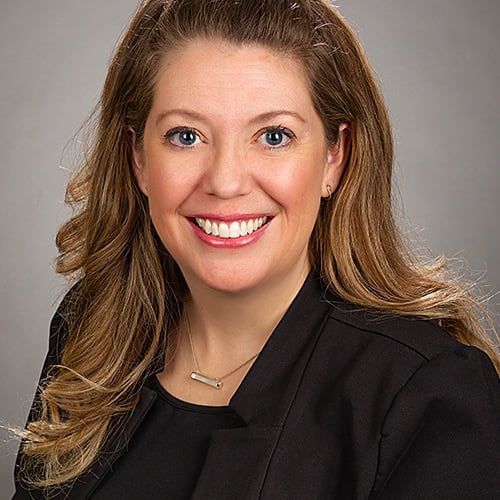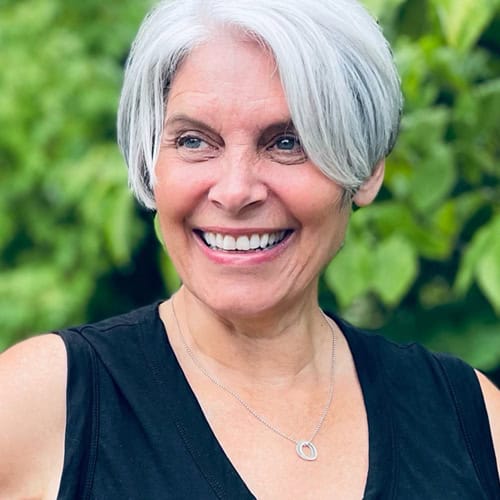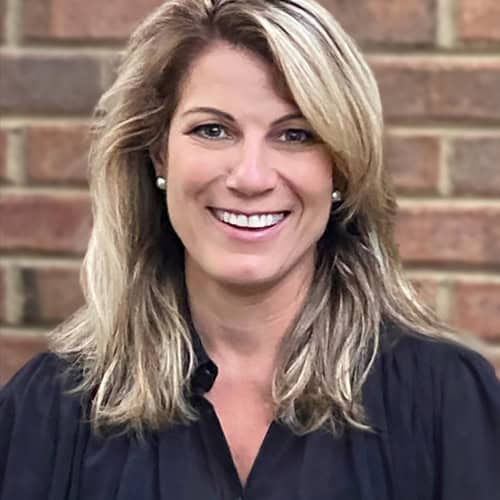

Tennessee Conference on Children’s Grief
Join Alive’s Grief Center for a one-day conference for local clinicians and community members who want to enhance their skills and learn about the latest research and clinical developments in working with grieving children and teens. Learn from experts in the field, and enjoy a free lunch along with fun opportunities to learn about Unscripted Improv.
Event Details
When: Thursday, November 9 | 9:00 a.m. – 5:00 p.m.
Location: The Honey Alexander Center at Family and Children’s Services, 2400 Clifton Ave, Nashville, TN 37209
Parking: Additional parking at Mt. Nebo church, located next door
Cost: $75 (Includes Lunch from Apple Spice)
Register Now
Registration closes November 7.
Mental health providers can receive six (6) Continuing Education hours for this event.
Tennessee Conference on Children’s Grief has been approved by NBCC for NBCC credit. Alive is solely responsible for all aspects of the program. NBCC Approval No. SP-4379.
Agenda
9:00 – 9:15 a.m. Arrival and Refreshments
9:15 – 10:30 a.m. Presentation
10:45 a.m. – 12:00 p.m. Presentation
12:00 – 1:00 p.m. Lunch Sponsored by Apple Spice
1:00 – 2:15 p.m. Presentation
2:30 – 3:30 p.m. Presentation
3:45 – 5:00 p.m. Presentation

Thank you to Apple Spice for their generous support!
Questions?
If you need special accommodations or have questions, please contact us.
Laura Gay Clark, Mission Based Services Program Manager: lclark@alivehospice.org | 615-679-4328
Guest Speakers
Kate Atwood, Founder, Kate’s Club
Discussion Topic: Reframing Grief for Children
Kate Atwood is the visionary Founder of Kate’s Club, a community for children and teens, their families, and young adults experiencing the death of someone close to them.
She is a passionate advocate and a frequent speaker on childhood bereavement. Her impactful TEDx talk, It’s Time We Reframe Grief for Children, has garnered widespread attention and appreciation.
In addition, Kate is the author of A Healing Place: Help Your Child Find Hope and Happiness after the Death of a Loved One, published by Penguin Books. Her story and expertise have been shared on major media outlets, including CNN’s Headline News, NBC’s The Today Show, and ABC’s The View. Kate’s commitment to supporting grieving children and her tireless efforts to elevate the conversation around childhood grief has been featured in six books by various esteemed authors and recognized in prestigious publications such as People Magazine, Huffington Post, and Good Magazine’s global Good 100 list.
Alissa Drescher, Sr. Director of Mission Based Services, Alive
Discussion Topic: Engaging Grieving Children and Adolescents through Expressive Arts
Alissa Drescher is the Senior Director of Mission Based Services at Alive Hospice. She was drawn to supporting the bereaved after the death of her daughter in 2004 and became a facilitator for Share Pregnancy & Infant Loss, Inc. offering encouragement to grieving parents. Her heart for being a companion to grieving adults and children led to a rewarding career which provided opportunities for wide ranging activities in the field of grief support, education and death and dying.
Alissa is a Licensed Professional Counselor, Fellow in Thanatology: Death, Dying & Bereavement, and a Certified Grief Counselor. She holds a Master of Arts in Marriage and Family Therapy with a focus in Play Therapy. Alissa is also a member of the Association of Death Education and Counseling, the National Alliance for Children’s Grief, The National Hospice and Palliative Care Organization (Bereavement Steering Committee Member), and the TN Licensed Professional Counselor Association.
Patti van Eys, PhD, van Eys Mental Health, LLC
Discussion Topic: The Complexity and Reality of Grief and Loss in Young Grievers
Patti van Eys, PhD, is a licensed clinical psychologist and consultant for van Eys Mental Health, with a focus on youth with complex mental health and trauma-related challenges. She has eight years of corporate experience, including Chief Clinical Officer for a foster care and behavioral health organization. For 17 years prior, Dr. van Eys served as faculty in Psychology and Psychiatry at Vanderbilt University where she directed the Center of Excellence for Children in State Custody. She trains at the local, regional, and national levels on trauma-informed care. The joy of her life is playing with her two young granddaughters.
Mara Giovanni, MSW, Kali Connection Therapy
Discussion Topic: The Use and Benefit of a Somatic Approach for Grieving Youth
Mara Giovani, MSW, is the innovator behind Kali Connection Therapy (KCT), a groundbreaking somatic therapy deeply grounded in neuroscience. Her mission is to heal trauma and alleviate anxiety within the nervous system, all while fostering empowerment in the body and fostering attunement and connection among participants.
After graduating with a master’s degree in Social Work from Columbia University, Mara embarked on a path spanning decades, pioneering innovative therapeutic groups centered around essential topics, including boundaries, trauma, safety, recovery, grief, and meditation.
Beyond her therapeutic contributions, Mara extends her reach nationwide, offering training sessions to help therapists bring somatic regulation and empowerment to their sessions. Mara’s dedication remains unwavering, as she continues to offer donation-based classes in Shelby Park in Nashville, ensuring that trauma treatment remains accessible to all.
For more information, visit kaliconnectiontherapy.com
AnneMarie Sears, LMFT, BSN
Discussion Topic: Lessons from Covenant and Beyond: Supporting Children, Teens, and Families After a Community Tragedy
AnneMarie Sears is an LMFT with a private practice in the Franklin area, specializing in addressing trauma and complex relationship issues for individuals, families, and couples. Under the mentorship of world-renowned trauma expert and developer of the trauma egg, Marilyn Murray, AnneMarie is a Murray Method trained Level I instructor. She conducts a variety of workshops, trainings, and inten-sives. With a background in nursing, holding a Bachelor of Science in Nursing (BSN), AnneMarie initially worked in Pediatric ICU and oncology. This early experience served as the foundation for her pursuit of a Master’s in Marriage and Family Therapy, leading to her extensive therapeutic expertise. Having close ties to the Covenant Church and School community for years, she continues working closely with those impacted by the March tragedy.
 Come Learn About Unscripted Improv
Come Learn About Unscripted Improv
Unscripted will be in attendance at the conference and we invite you to come learn more about the work they do.
Unscripted is a nonprofit organization based in Nashville, TN. We heal, empower, and connect the community through improv. Our programs focus on three main areas: Education (teacher professional development, etc.), Community Access/Outreach (community partnerships that provide improv training and performances for historically excluded or under-resourced communities), and Wellness (Improv for Anxiety, Improv for Life, Improv in Recovery Centers, etc.)
The Improv for Anxiety program is designed to help people with mild to moderate anxiety build awareness and skills that help to manage their symptoms in work, home, and social situations. The class is co-led by an improv teacher and a therapist. The program was developed by Unscripted improvisers and teachers in partnership with licensed therapists to practice improv through a therapeutic lens. This class provides an interactive and joyful opportunity to practice applying skills for anxiety management and awareness.
We connect with therapists and mental health professionals in the community to make this resource available to recommend to their clients and patients.
Session Overviews
-
Session 1: Reframing Grief for Children+
Presented by: Kate Atwood
Kate will share her personal journey, reflecting on the profound loss of her mother when she was just 12 years old. This pivotal moment in her life became the catalyst for founding Kate’s Club. This conversation will delve into the philosophy, strategies, and programs that benefit the lives of young people navigating the path of grief today, and address the importance of a community-wide effort to support grieving youth.
- Describe the individual and collective impact of unaddressed grief in childhood.
- Examine how children understand death and respond to loss from a developmental perspective.
- Illustrate the benefits of community programming for grieving children.
- Recognize the importance of addressing your own grief and balance your needs as you set out to serve others.
-
Session 2: The Complexity and Reality of Grief and Loss in Young Grievers+
Presented by: Patti van Eys
This session will focus on the often complex reality of grief for young people. Social, relational, and cultural factors may create disenfranchisement in the grief experience creating a multi-layered circumstance wrought with multiple losses and trauma. How best then can clinicians support young grievers who present for counseling? This session will explore the signs of complicated grief, and offer counseling strategies from a trauma-informed perspective.
- Differentiate complicated grief, including prolonged bereavement, from uncomplicated grief in young grievers.
- Explain the intersectionality between trauma and grief.
- Summarize common reactions to loss across development.
- List foundational therapeutic approaches to help children, teens, and families navigate grief journeys.
-
Session 3: Engaging Grieving Children and Adolescents through Expressive Arts+
Presented by: Alissa Drescher
Often it can be difficult to engage young grievers through discussion, as they have yet to develop a language around loss and death concepts. Yet, meaning-making and open communication about the loss are known to be preventative measures to thwart prolonged grief. Therefore, clinicians need to be equipped to connect with a young client’s grief through other means. This presentation will focus on the benefits of using Expressive Arts techniques to externalize the loss experience, and help children and adolescents feel comfortable confronting loss-related concerns. Six developmentally appropriate expressive arts activities will be demonstrated in a hands-on experiential format that is consistent with the Continuing Bonds theory of bereavement.
- Explain the benefits of expressive arts as an approach to connect with grieving youth.
- Demonstrate six unique expressive arts activities appropriate for use in the clinical setting.
- Recognize the role of Meaning Making in childhood bereavement.
- Discuss Continuing Bonds Theory and its use with bereaved children and adolescents.
-
Session 4: The Use and Benefit of a Somatic Approach for Grieving Youth+
Presented by: Mara Giovanni
The purpose of this session is to familiarize participants with the core concepts of Polyvagal Theory, and apply these concepts to working with grieving youth. In addition, the KALI Connection therapeutic approach will be actively demonstrated so that attendees are introduced to a practical somatic technique that may benefit their bereaved clients.
- Analyze the foundational concepts of the Polyvagal Theory, including the crucial aspect of Neuroception, to gain insights into their application for supporting grieving youth effectively.
- Develop the ability to identify, differentiate, and understand various nervous system states in grieving youth, enhancing the capacity to provide tailored support.
- Emphasize the vital role of bottom-up regulation in promoting emotional healing and resilience in children and adolescents experiencing grief.
- Actively demonstrate and teach a practical somatic technique that can be applied to provide effective support and intervention for grieving youth, equipping participants with an actionable skill.
-
Session 5: Lessons from Covenant and Beyond: Supporting Children, Teens, and Families After a Community Tragedy+
Presented by: AnneMarie Sears
Mental health professionals are commonly called upon in the wake of a community tragedy to provide crisis counseling and community support. Therefore, it is imperative that clinicians are aware of evidence-based tools and frameworks applicable to such situations so as not to retraumatize participants. This session will provide an overview of multiple tools that are suitable for use after a mass loss event and equip clinicians with resources and skills to help foster both individual and community healing after a tragic event.
- Explain the CISD tool and areas of opportunity for future use as a vital tool for responding to trauma and promoting psychological resilience in individuals and groups.
- Evaluate fundamental survival needs, referred to as Survival Bricks, and their impact on individuals following trauma.
- Utilize the Circles of Intimacy, Priorities, and Impact for clients to establish healthy boundaries and clarify personal priorities, promoting self-care and balanced lifestyles.
- Discuss how to recognize and address suppressed emotions and the degree and intensity of their or the client’s Pool of Pain.
Learning Objectives
1. Compare current models for the conceptualization of grief in children.
2. Differentiate typical vs. traumatic, complex grief response and identify strategies of support applicable for both circumstances.
3. Recognize evidence-based approaches to working with bereaved youth from a developmental perspective.
4. Demonstrate six unique expressive arts activities appropriate for use in the clinical setting.





